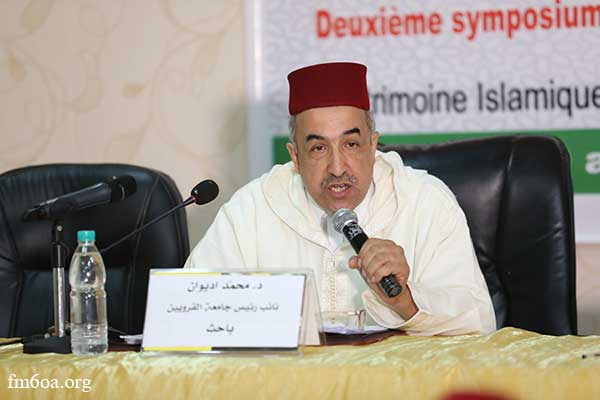The Civilizational Importance of the Islamic Manuscript in Africa and how to Preserve it

During the conference organized by the Nigerien section of the Mohammed VI Foundation of African Oulema on the theme of “ African Islamic heritage in Niger Between the Past, Present and Future Prospects”, on 17 and 18 Dhu Al Qi’ada 1440 H, corresponding to 20 and 21 July 2019, in Niamey, Dr. Mohamed Adywan, Vice-President of Al Quaraouiyine University in Fez, emphazised the civilizational importance of the Islamic manuscript in Africa and how to preserve it.
Islam emerged the African continent, from the east to the west, through commercial, doctrinal and Sufi relations. Those ties were ways of engaging Africans in embracing Islam and being creative in its jurisprudential and scientific fields. In addition to the scientific trips carried out by Oulema to teach people and promote the Islamic culture. Thus, the Western Sudan from the river of Niger to Mali, was the main gateway to Islam in West Africa.
Hence, Africans have been influenced by Islam, ideology, culture and thought. This is illustrated in the thousands of manuscripts left behind by the Muslims of Africa in each country. Those art pieces were made in several languages to deal with daily life aspects representing a national heritage treasure that shows creativity and needs preservation to ensure continuity.
It is therefore necessary to coordinate efforts among African countries for the planning and formulating of local, regional and African strategies to support, maintain, preserve and protect the Islamic manuscript heritage, which should remain a sign of the African identity within the African cultural dynamism, strengthened by awareness toward the cultural unity.
